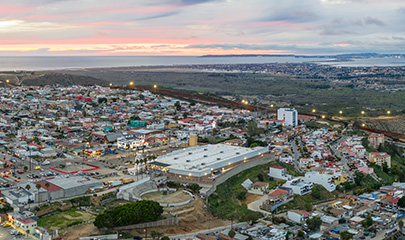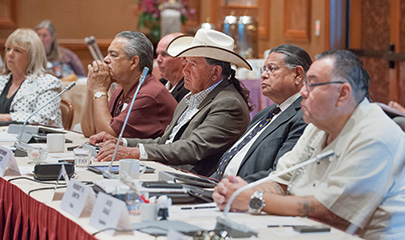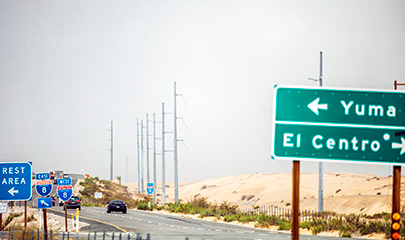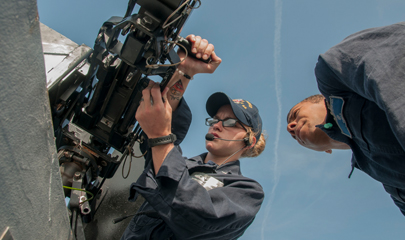The impact of everything we do at SANDAG in planning the future of our region extends well beyond our own borders. We are linked socially, economically, and geographically with our neighboring counties, tribal governments and the Republic of Mexico.
We’ve made it a priority to identify and address the many opportunities and challenges that come with planning along our binational and interregional borders, including our international border with Mexico, our interregional neighbors in Orange, Riverside, and Imperial Counties, and our relationship with tribal governments within the San Diego region.
We’ve identified six critical planning areas around which to focus collaborative efforts that benefit all our communities: jobs and housing accessibility, transportation, energy and water supply, environment, economic development, and homeland security. We’ve added other areas more recently to include climate change collaboration, active transportation, and public health.
We’ve also established the following principles to guide us in working with our neighbors:
- Our planning is fair, equitable, and considers the interregional impacts of everything we do, while maintaining active and honest communication with our neighbors.
- We promote shared infrastructure, efficient transportation systems, integrated environmental planning, and economic development.
- We recognize that we live in a unique and dynamic place that embraces cultural diversity, promotes interregional understanding, and benefits from our shared history and experiences.
How We Work with Our Border Partners
We’ve created several committees and working groups to coordinate SANDAG’s planning efforts with our border partners.
The Borders Committee provides oversight for planning activities that impact the borders of the San Diego region as well as government-to-government relations with tribal nations in the San Diego region. SANDAG and partner agencies collaborate within a geographic area that encompasses San Diego, Orange, Riverside, and Imperial counties, the 17federally-recognized sovereign tribal nations, and the Tijuana–Tecate–Playas de Rosarito metropolitan zone in northern Baja California.
The Committee on Binational Regional Opportunities (COBRO) serves as a taskforce for the Borders Committee and facilitates better understanding of binational border-related issues and needs of the California–Baja California region. The membership consists of elected officials and staff, representatives of academia, business, community organizations, and the Mexican government.
The Interagency Technical Working Group on Tribal Transportation Issues connects tribal nations and public agencies that have an impact on tribal transportation to discuss issues of mutual concern. In the San Diego region, there are 17 independent sovereign tribal nations with jurisdiction over 18 reservations—the most in any county in the United States.
























